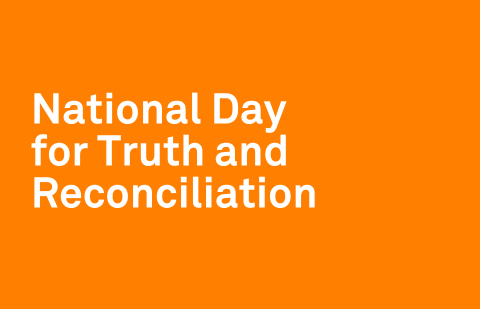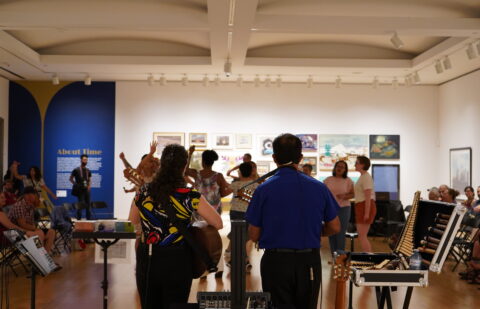This is an excerpt from Reagan’s full response, which can be seen off of the lobby at the gallery.
[…]
It is important to consider that at the time of Curtis’ career Indigenous populations throughout the continent had already suffered the severe effects of colonialism. It is because of this that many believe there is some validity to Curtis’ claim to be photographing a peoples who were “vanishing”. However, this language has also served to promote ideas that Indigenous people do not exist, and often prevents non-Indigenous peoples from really seeing us. Curtis was also known for his techniques of editing his images, often removing signs of modern technologies from his Indigenous subjects to promote ideas of primitivism. Additionally, he was known for stealing sacred items from communities which he would then travel with and place on his subjects in other territories.
Outside of these controversial and problematic components of his work, many of us are still drawn to these images. I am drawn to Picking Blueberries because of these complexities, and because the image appears more candid than some of Curtis’ more obviously staged works. I feel a sense of calmness and humanity when I look at this photograph. Due to the effects of colonisation and colonial policies, many of us feel disconnected and deterritorialized from our communities and traditional ways of knowing. These ways of knowing, such as the berry harvest taking place in this image, reflect ways of knowing that strengthened and maintained our relationship to the land, to our families and communities. Some of us learned and still carry these ways of knowing, some of us are mourning the loss of these practices and are trying to learn.
By reflecting upon Picking Blueberries from the RMG Permanent Collection I hope visitors take the opportunity to revisit how we have been seen and unseen, but also how we have been disconnected and how we can reconnect.
-Reagan Kennedy


